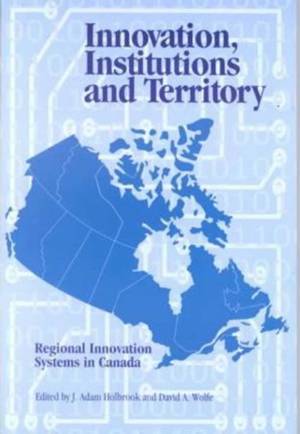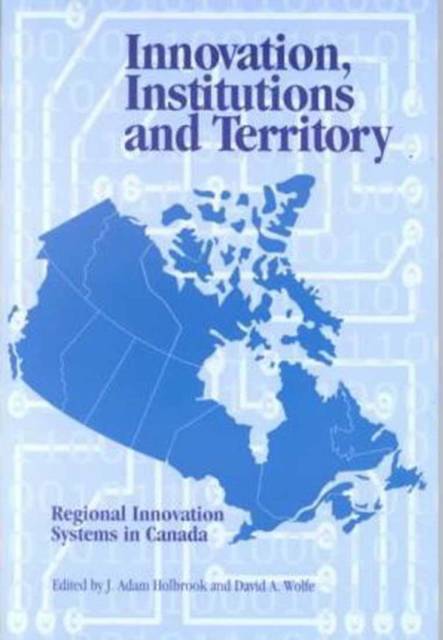
- Afhalen na 1 uur in een winkel met voorraad
- Gratis thuislevering in België vanaf € 30
- Ruim aanbod met 7 miljoen producten
- Afhalen na 1 uur in een winkel met voorraad
- Gratis thuislevering in België vanaf € 30
- Ruim aanbod met 7 miljoen producten
Zoeken
Innovation, Institutions and Territory
Regional Innovation Systems in Canadavolume 56
Adam Holbrook, David a Wolfe
€ 51,95
+ 103 punten
Omschrijving
Concerns over Canada's ability to compete in the global economy persist despite its relatively improved economic performance in recent years. The key to success in this global economy lies in our capacity to innovate - the ability to develop new, or significantly improved, services, products, production techniques, or management methods - and the capacity to sustain those innovations. The challenge of competing in a global, knowledge-based economy accentuates our need to understand how the innovation process operates in the context of Canada's diverse regional economies. Attempts to understand the nature of the innovation process, and to develop policy to support it, which are exclusively at the national level may founder on this problem of diversity. Policy and analysis in Canada, based on an innovation systems approach, must take into account the economic and social differences among the regions. infrastructure, a factor that strongly influences the innovative potential of regions across the country. Finally, case studies focusing on Quebec and British Columbia provide a detailed picture of the strengths and gaps of individual regional innovation systems. Written by members of the Innovation Systems Research Network (ISRN), a cross-national network of regionally oriented researchers, Innovation, Institutions and Territory provides useful insights for scholars and for policymakers at the federal, provincial, and subregional levels. Contributors include Frédéric Allaert (Minolta, France), Tomas G. Bas, Robert Dalpé (Montréal), Sophie D'Amours (Laval), Jérôme Doutriaux (Ottawa), Adam Holbrook, Lindsay Hughes, Marie-Pierre Ippersiel (CIRST), Réjean Landry (Laval), Candace Morrison, Richard Nimijean (RQSI and PRIME), Jorge Niosi (UQAM), Tim Padmore (UBC), Diane Poulin (Laval), David Rolland (UQAM), Udo Staber (New Brunswick), Diane-Gabrielle Tremblay (UQAM), and David A. Wolfe.
Specificaties
Betrokkenen
- Auteur(s):
- Uitgeverij:
Inhoud
- Aantal bladzijden:
- 224
- Taal:
- Engels
- Reeks:
- Reeksnummer:
- nr. 56
Eigenschappen
- Productcode (EAN):
- 9780889118911
- Verschijningsdatum:
- 1/08/2000
- Uitvoering:
- Paperback
- Formaat:
- Trade paperback (VS)
- Afmetingen:
- 152 mm x 228 mm
- Gewicht:
- 358 g

Alleen bij Standaard Boekhandel
+ 103 punten op je klantenkaart van Standaard Boekhandel
Beoordelingen
We publiceren alleen reviews die voldoen aan de voorwaarden voor reviews. Bekijk onze voorwaarden voor reviews.







